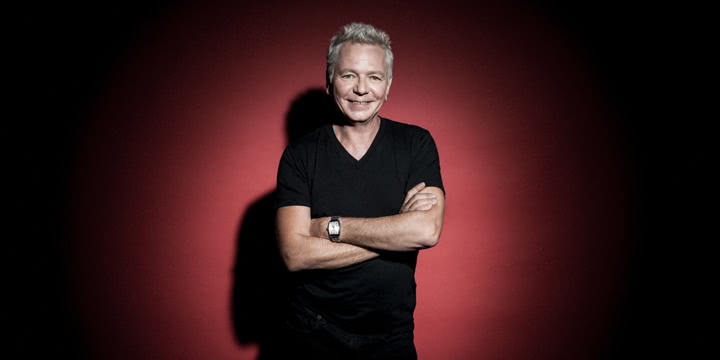Iva Davies still remembers everything.
That’s one of the main things one learns upon speaking with the founding member of Icehouse for just a few minutes. On the eve of what will be the band’s 40th year in existence, the 61-year-old holds many fond memories across an illustrious multi-platinum career. Davies recalls in particular the earliest days of the group, and his transition from the world of classical music into rock – never to look back.
“I had played acoustic guitar since I was about 13 years old,” he begins. “I played oboe – I was classically trained, and had even sat in with a symphony orchestra. By the time I was 21, though, I’d given it up entirely – so, on my 21st birthday, I bought my first-ever hollow body electric guitar and a Marshall amp. One of my neighbours heard me playing over the fence, and it so happened that her son, Keith [Welsh], was a bass player. He came over, and we realised we had a lot in common musically. We formed Flowers, and soon after scored our first pub gig, which was actually the first time that I had ever been in a pub.”
Along with drummer Don Brown, Davies and Welsh formed the first known version of Icehouse in 1977. They were known as Flowers at the time, becoming Icehouse in 1981 after their song and album of the same name. Davies reminisces on a very different musical climate that greeted the band up and down the east coast.
“It was a very exciting time for Australian music,” he says. “The punk scene had just arrived in Australia properly, so as young music fans a lot of us were wrapping our heads around that. We were all just wrapped up in that energy. I guess Flowers kind of started as a sort of punk band, but we were definitely a strange sort of punk band. We used synthesizers a lot in our music, and at the time that was seen as being very out of the ordinary.
“It was an extraordinary time in terms of innovations and inventions as far as musical technology was concerned. Our first album featured a lot of what were, at the time, brand-new synthesizers. The album after that [Primitive Man] featured a very early drum machine. By total accident, we as a band were pioneering a lot of these new sounds by incorporating them into our music.”
Throughout the ’80s, Icehouse would go on to record their biggest hits – ‘Hey Little Girl’, ‘Great Southern Land’ and of course ‘Electric Blue’, boasting a music video that featured Davies sporting one of the finest mullets ever captured on film. For all their success and their extensive touring, however, Davies never once had the light bulb moment – the realisation that Icehouse had ‘made it’ against the odds. In the back of his mind was always the notion that the band was purely a fluke.
“Very early on, before the Flowers album had come out, the Sydney Conservatorium of Music had announced a new course,” he says. “They were going to be taking on six people, and the course was nine hours a day for six days a week. I told my bandmates then and there: if I got into this course, that would be the end of the band. I went on to fail the test, and subsequently did not qualify – which, interestingly, was the first notable course for piano tuning. To think, if I didn’t spend 40 years making music, I’d have spent that time tuning pianos instead. I think it shows I was a great sceptic about the band, too – that would stay with me for many years. Strangely, I never truly thought what the band was doing was ever more than just a temporary thing.”
Still, here we are. In 2017, Icehouse will celebrate their 40th anniversary with a run of headline theatre shows taking in elements of their entire body of work. These look to be some of the biggest Icehouse gigs ever, both in terms of physical size and runtime, as Davies and his bandmates look to the vaults to see what they can come out with.
“We’re still in the process of developing ideas of what to play,” says Davies. “We’re in a relatively luxurious position of knowing we have a surplus of material – we know that we have such a body of work, there’s absolutely no way we can cover all of it at a single show. The difficult part comes with deciding what to leave out. It’d be easy to just pick the songs that hit the top 40 – we’ve got about 30 of those – but not all of those songs are necessarily fun to play live. It’s a matter of striking a balance between what people want to hear and what we’d like to play, so we’ll see how the decisions come from there.”
Icehouse celebrate 40 years at theEnmore Theatre on Friday January 13, Saturday January 14 and Friday June 23.


































